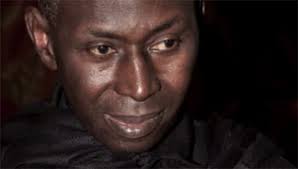The Senegalese academic died in Paris, France, aged 73 last Sunday, following a protracted illness.
Those who knew him are full of praise for his immense contributions in intellectual circles.
“Who hasn’t come across the name Momar Coumba Diop over the last 40 years, when researching social change and anthropology in Senegal?
These were the words of a young Senegalese journalist who paid tribute to the memory of a prolific researcher.
The deceased directed or participated in the writing of a string of works, including Le Senegal sous Abdoulaye Wade; Le Sopi à l’epreuve du pouvoir; Le Senegal contemporain; Le Senegal sous Abdou Diouf, Etat et Societe; La societe senegalaise entre le local et le global; Senegal: trajectoires d’un Etat (1960-1990); La construction
de l’Etat au Senegal; Senegal (2000-2012). Les institutions et politiques publiques à l’épreuve d’une gouvernance liberale; Gouverner le Sénégal.
His contributions also include: Between structural adjustment and sustainable development; Political figures in Africa. Des pouvoirs herites aux pouvoirs elus; and Le Senegal des migrations. Mobilites, identites et societes.
Momar Coumba Diop taught sociology at the Faculty of Letters and Humanities (FLSH) at the Université Cheikh Anta Diop (UCAD) in Dakar from 1981 to 1987, before joining the Institut fondamental d’Afrique noire (IFAN).
In 2023, his peers Ibou Diallo, Ibrahima Thioub, Alfred Inis Ndiaye and Ndiouga Benga presented him with a 720-page book entitled Comprendre le Senegal et l’Afrique d’aujourd’hui (Understanding Senegal and Africa Today).
Some forty academics from a number of countries on the black continent have written high-quality testimonies
or contributions that cross-reference or complement his work.
Flowery tributes
Professor Momar Coumba Diop was one of the leading figures in social science research in Senegal and Africa. Cheikh Anta Diop University in Dakar, the temple of knowledge where he shared his encyclopaedic knowledge, has mourned the death of an “immense researcher” in the humanities and social sciences.
“Momar Coumba Diop left a number of works to posterity that are benchmarks for understanding the major issues facing our country and the world. As a major intellectual, he was able to compensate for his vocal problems with a prodigious written scientific output. We will miss the depth of his thought,” said Mademba Ass Ndiaye, a former journalist.
El Hadj Hamidou Kasse, a journalist, philosopher by training and Special Adviser to former President Macky Sall, said that “Momar Coumba Diop, a fertile and generous intellectual, is Senegal’s most prolific sociologist” because “several works under his direction have shed light on the trajectory of our country”.
People who are little known to the general public also paid warm tribute to the academic who, since the end of the 1980s, has directed research into the state of contemporary Senegal. “Momar Coumba Diop
was a sociologist with a historian’s flair, a gatherer of enlightenment, and a generous and kind-hearted man of discretion. May the earth be light to him,” Rama Salla Dieng wrote.
Editions Karthala, argued that “through his thought and his productions, he mobilised new ways of understanding Africa in general and Senegal in particular.”
Not a prophet in his own home
Alioune Tine, founder of the Afrikajom Center think tank, was full of praise for Momar Coumba Diop: “He has just left us in a spirit of discretion, which was one of the hallmarks of his ethos. He was a prolific sociologist and political scientist of great intellectual rigour. His publications, with scientists such as Abdoulaye Bathily, Mamadou Diouf, Jean Copans and Aminata Cisse, on the trajectory of the State of Senegal and our democracy, are of exceptional quality.”
The human rights defender brought back memories of his time with the deceased. “He passionately followed with me the various stages of the recent democratic crisis in Senegal. We continued to talk when he was in Paris (France) and I was in Brussels (Belgium) in March-April 2024. The last time we spoke was on 24 June. We arrived at the Faculte des Lettres et Sciences Humaines at the same time. We shared the same corridor with Souleymane Bachir Diagne, Aloyse Ndiaye, Semou Pathe Gueye, Malick Ndiaye, Elimane Kane… With Professor Abdoulaye Bara
Diop and myself, we spent two months in Pyongyang, North Korea at the invitation of the government in the early 1980s,” Mr. Tine recalled.
“If the man is not a prophet in his own house, because he did not receive the recognition he deserved during his lifetime, he did enjoy immense respect within the research community,” Seydou Ka, a journalist with the national daily ‘Le Soleil’ concluded.
ID/te/Sf/fss/as/APA


